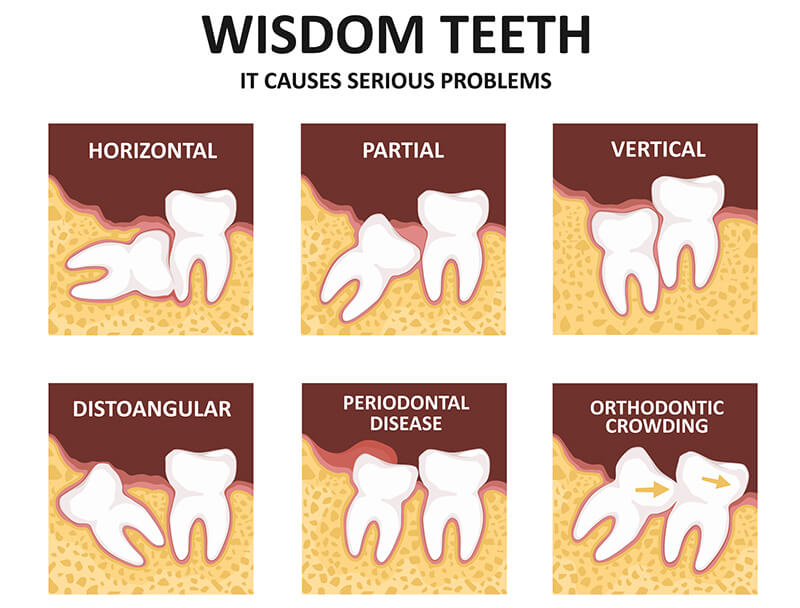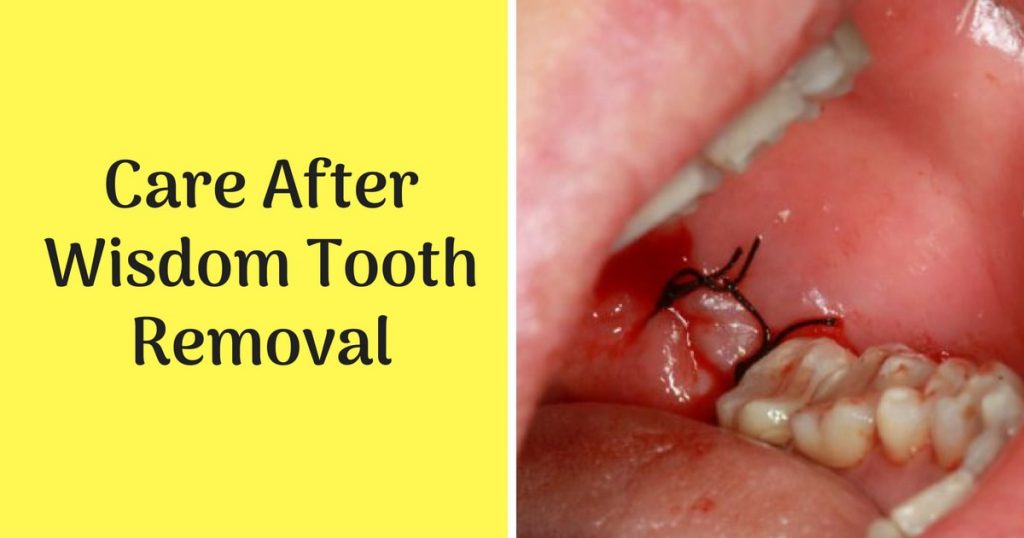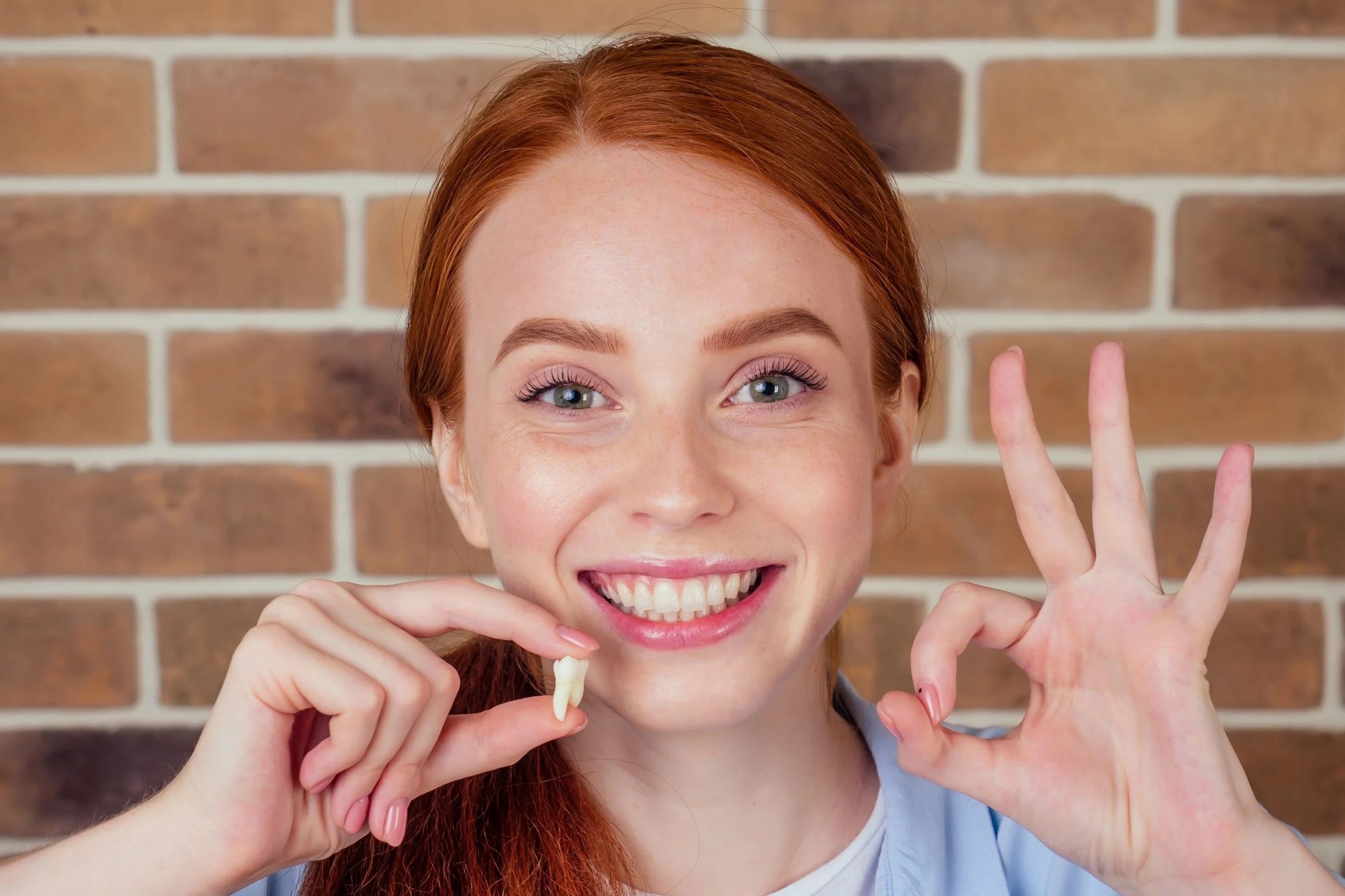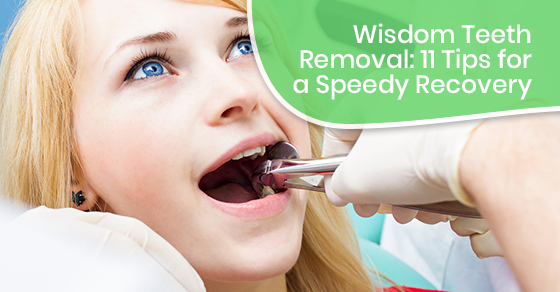The thought of getting your wisdom teeth removed is intimidating. I mean, it’s not like getting a cavity filled or even having braces put on. It’s a surgical procedure that requires anesthesia and can lead to complications if something goes wrong. So yes, you should be concerned about this procedure—but don’t let it stop you from making an appointment with your dentist if you need them out! Here are some things that happen during the process of removing wisdom teeth and the steps you can take to make sure everything goes smoothly.

The Procedure:
After your wisdom teeth are extracted, you may feel some discomfort. This is normal and usually only lasts for a few hours. Most patients can go home after the procedure with a prescription for pain medication.
If you’re not experiencing any noticeable pain or swelling, you can return to most of your normal activities within 24 hours of your surgery. If there’s some discomfort or swelling, it may be best to wait until the following day before driving or performing other tasks that require concentration or fine motor skills (like writing).
If you have any questions about what to expect from this experience or if wisdom tooth removal seems like something you might benefit from, please contact us today.

The day of surgery:
On the day of your surgery, you’ll want to do everything in your power to make sure the process goes as smoothly as possible. First of all, arrive on time. Even if there’s a line out the door and you’re running late because of traffic or whatever else might happen—no matter what, don’t be late! The staff at the clinic will have been waiting for hours by then, so arriving even just five minutes past when they have scheduled their first patient can cause a major delay that could lead to discomfort or frustration for both parties involved in this process.
Second: get prepared to go straight home after surgery is over with an overnight bag packed and ready to go before leaving home that morning (if possible). While most clinics offer overnight stays following wisdom tooth removal procedures (and some will even provide meals), there are certain times when this isn’t possible due to scheduling conflicts or limited space available inside their facilities—which means patients must go back home after their procedures are complete.
Remember: don’t eat or drink anything after midnight before surgery takes place; otherwise there’s the chance that certain foods may become stuck in your teeth during extraction (especially if you’ve got loose fillings). And finally… try not to worry too much about what happens during this process! It’ll all work itself out eventually… Hopefully 🙂
After surgery:
- Elevate your head.
- Drink plenty of water.
- Take the pain medication as prescribed by your dentist or oral surgeon.
- Avoid smoking, alcohol and caffeine for 24 hours after surgery.

Home care/recovery:
- Take pain medication as prescribed to manage any discomfort you may be feeling.
- Avoid strenuous activity, such as heavy lifting and sports, for the first few days after your surgery.
- Don’t eat hot or hard foods until your mouth has healed sufficiently (usually 6-8 weeks).
- Drink plenty of water to help keep you hydrated and encourage healing.
- Take a painkiller if needed (over-the-counter ibuprofen or acetaminophen is best) as prescribed by your dentist immediately following the procedure; in general, take no more than one dose every four hours for up to three days after surgery. If necessary, consult with your dentist about taking stronger doses—for example, prescription Tylenol or Advil—in addition to over-the-counter medications. The use of NSAIDs such as ibuprofen can have adverse effects on healing time and tissue integrity so it’s important not to overuse them!
Sneezing and nose blowing after oral surgery:
You should avoid blowing your nose and should not drink through a straw. You may also want to avoid smoking or chewing gum. If you are taking prescription medications, please consult with the oral surgeon at least 2 weeks before your procedure to discuss alternative forms of medication.
You should not eat hard foods while recovering from wisdom tooth removal surgery since this can cause pain and bleeding in the area where the wisdom tooth was removed. Do not chew on ice or crunch on food such as chips, nuts or even carrots. You may also want to avoid drinking alcohol during this period as well because it could cause additional swelling and discomfort in your mouth and throat area.
Finally, when swimming post-surgery is not recommended because water can get into the socket where there was once an impacted wisdom tooth causing increased swelling in this region which can lead to more pain than normal if it becomes infected due to bacteria entering through open sores that form after surgery has been completed.

Swelling and bruising after oral surgery:
Swelling and bruising are normal after oral surgery. Your mouth may look a little swollen for a few days, but it should return to its normal size within that time. To help alleviate some of the swelling, apply ice packs to your face for 20 minutes at a time every 3 hours while you’re awake. You can also take over-the-counter pain medication as prescribed by your doctor or dentist; avoid strenuous activity for a few days so you don’t increase your risk of bleeding or infection.
Taking pain medicine after oral surgery:
Take pain medicine as prescribed by your doctor. Don’t take any other drugs while you are taking the pain medicine.
Don’t drive or operate machinery after taking pain medicine.
Don’t take aspirin or non-steroidal anti-inflammatory drugs (NSAIDs).
Getting your wisdom teeth removed isn’t as bad as you might think.
Getting your wisdom teeth removed isn’t as bad as you might think. Preparation is key, however. You should expect to be sore afterwards, but don’t hesitate to ask questions about how long the recovery period will last or how you can manage pain during that time. Be sure to communicate with your dentist about any concerns or fears so they can help put them at ease, and then get ready for a positive experience!
Conclusion
I hope this blog post has helped you feel more prepared for your upcoming wisdom teeth removal. It’s really not as bad as it sounds, and there are many resources available to help you through the process. I wish you the best of luck with everything!

